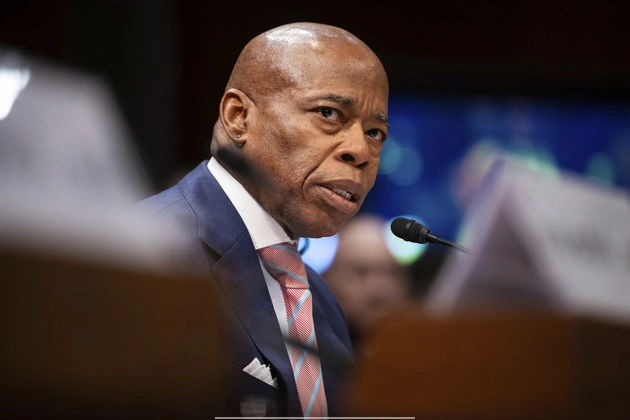
Reforming the Democratic Party's Economic Messaging Post-Election
The Challenge of Economic Messaging for Democrats
NEW YORK — In the aftermath of the recent election, the Democratic Party is grappling with the implications of their defeat and the crucial role of economic messaging in their future success.
Senate Minority Leader Chuck Schumer emphasized the necessity of delivering tangible results to address voters’ economic anxieties, signaling a shift in the party’s approach.
Diverse Perspectives within the Party
Despite a common acknowledgment of the need to reclaim the economic narrative from Republicans, New York House Democrats exhibit a spectrum of views on the starting point for this endeavor.
While some focus on messaging strategies, others prioritize addressing cultural divides. However, the consensus lies in the urgency of reshaping the economic discourse.
New York’s Influence in the Party’s Evolution
New York’s prominent figures like Schumer, House Minority Leader Hakeem Jeffries, and progressive icon Rep. Alexandria Ocasio-Cortez play pivotal roles in shaping the party’s direction.
The state’s success in the last election and the diverse viewpoints within its delegation underscore the significance of New York in the Democratic Party’s future.
Focusing on Cost of Living and Border Security
Some House Democrats, including Rep. Tom Suozzi, advocate for a bipartisan approach to addressing border security and immigration challenges, emphasizing the need for effective solutions over political posturing.
Rep. Yvette Clarke highlights the importance of combating misinformation and promoting factual accuracy in the national discourse.
A Unified Emphasis on Economic Issues
Several New York representatives, such as Greg Meeks, Nydia Velázquez, and Pat Ryan, stress the party’s commitment to middle and working-class Americans over corporate interests and billionaire influence.
As Democrats prepare for the upcoming legislative battles, the focus remains on showcasing clear distinctions in economic policies and priorities.
The Path Forward for Democrats
Senate Majority Leader Schumer’s proactive stance on judicial appointments and the scrutiny of Trump’s Cabinet nominees signal a strategic approach to challenging the GOP’s economic agenda.
The upcoming confirmation hearings and the debate over tax policies present critical opportunities for Democrats to articulate their vision for a more equitable economy.
Building a Stronger Democratic Narrative
Rep. Pramila Jayapal’s advocacy for focusing on key legislative proposals, like addressing the Trump tax cuts, underscores the party’s intent to champion policies that benefit working-class Americans.
Despite calls for bipartisanship on certain issues, Democrats remain steadfast in their commitment to key priorities like healthcare and immigration reform.
Empowering Democratic Leadership
Leader Jeffries’ strategic leadership and the collaborative efforts of New York Democrats position the party as a formidable force in the political landscape.
The unity within the Democratic ranks, coupled with a nuanced understanding of economic challenges, strengthens their ability to counter the GOP’s agenda effectively.















